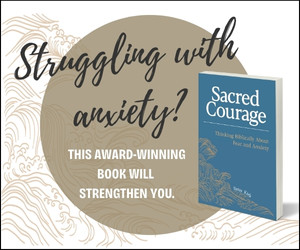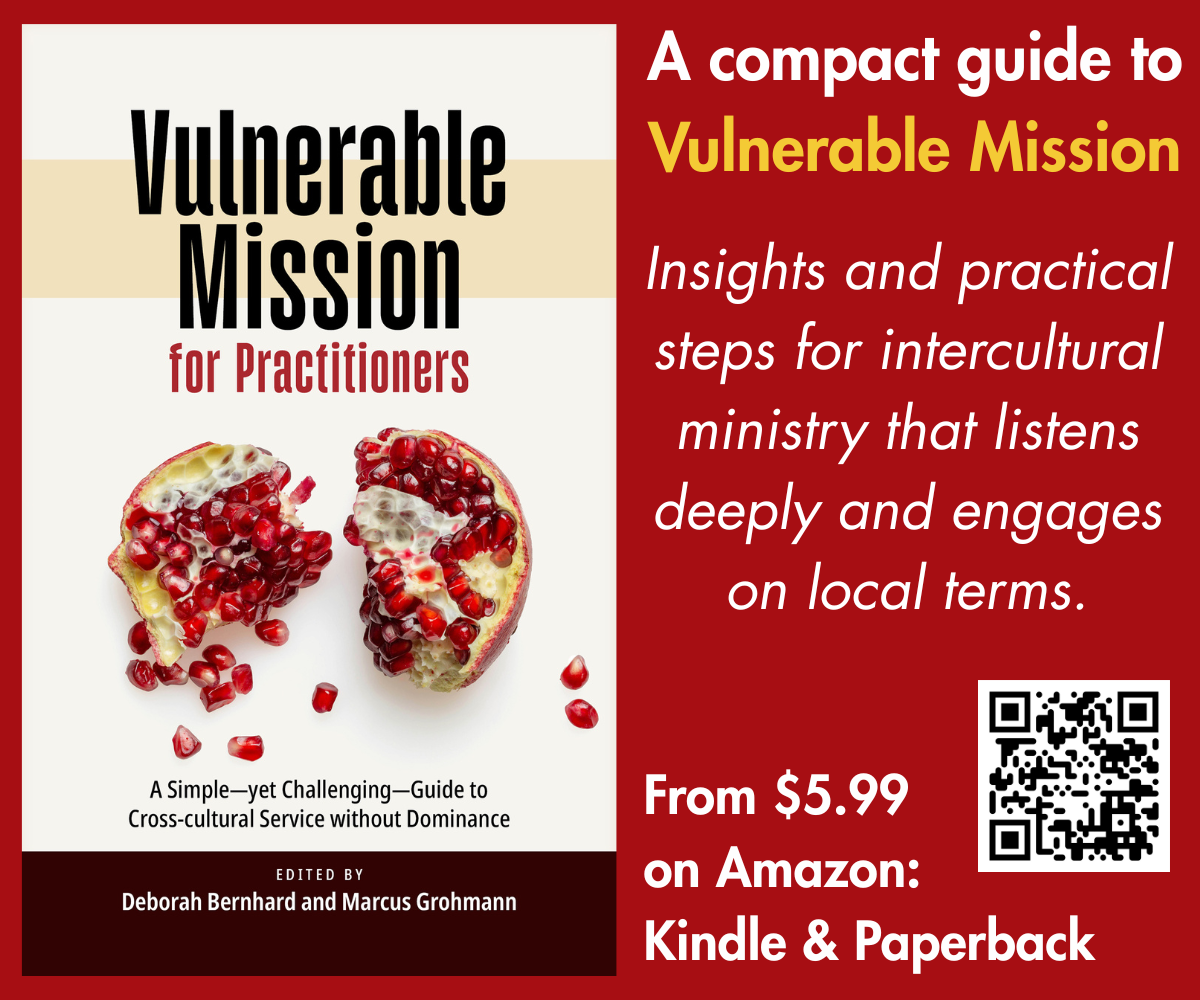EMQ » Oct – Dec 2024 » Volume 60 Issue 4

Divine Inheritance Reconsidered
Summary: As a Christian working in disability ministry, I’ve discovered profound connections between Psalm 82, Jesus’s mission, and our call to justice. This psalm reveals how God is reclaiming his inheritance – including people with disabilities – from rebellious spiritual authorities. Understanding this empowers us to engage in both evangelism and social transformation through the church.
By Chris Masiscoming*
Psalm 82 (ESV) reads:
God has taken his place in the divine council;
in the midst of the gods he holds judgment:
“How long will you judge unjustly and show partiality to the wicked? [Selah]
Give justice to the weak and the fatherless;
maintain the right of the afflicted and the destitute.
Rescue the weak and the needy;
deliver them from the hand of the wicked.”
They have neither knowledge nor understanding,
they walk about in darkness;
all the foundations of the earth are shaken.
I said, “You are gods, sons of the Most High, all of you;
nevertheless, like men you shall die, and fall like any prince.”
Arise, O God, judge the earth;
for you shall inherit all the nations!
I have never given Psalm 82 much thought during my Christian life. For me, it was relegated to an odd cluster of Bible passages that seemed mysterious and unintelligible – maybe best for me to not pay it much attention. At the same time, I have wrestled during my years of cross-cultural vocational ministry to make sense of the Christian callings to “do justly” and “make disciples of all nations.”
My professional role in the US before moving overseas and my most public role in North Africa, has been to support people with disabilities and to try to overcome issues of injustice that prevent them from being included in society. I am also sent out by an organization which is singularly focused on seeing movements of churches planted among unreached people groups.
I love my public professional role, and I love my organization. However, I often find myself caught between two seemingly different sides of a spectrum, with disability-related justice issues on one side and church planting, evangelism and discipleship on the other.
It is my conviction that Christian development projects must preach. Our activities which demonstrate love, mercy, and justice with and for people with disabilities and their families must also communicate the Gospel message.
Often this comes across as progressively revealed news of hope. We do not blurt out to Muslims, “your child is created in God’s image, and he or she can be called his child and co-rule the cosmos with him” because, well, that wouldn’t land very well. We do, however, model what the image of God is as seen in Genesis 1 and 2 by encouraging people with disabilities’ participation in community-based vocation, responsibility, communication and relationships.
If the Creator God is glad to instill his image on humans – in the midst of our shortcomings, limitations, and disabilities – then the idea of that same Creator God himself taking on the limitations and infirmities of mortality can find more space in a worldview.
By laying a groundwork for people to accept the truth that all people (including those with disabilities) are created in the Image of God, I believe we can better address the worldview hurdles for Muslims of the doctrine of the Incarnation. This can then prepare the way for people to know Jesus as Lord, God as Father, and to be indwelt by the Holy Spirit.
I believe that the doctrine of the Image of God is a self-evident truth that is suppressed by systems of lies. These systems of lies need to be actively confronted and responded to with truth. The battleground is not only an intellectual framework – there is also a spiritual jurisdiction of submission to rebellious spiritual authorities – whether intentional or not – that must be renounced and replaced with submission to Jesus.
Social Transformation Through the Church
I recently audited a course on deliverance in the discipleship of Muslim Background Believers taught by Mark Durie through the Lilias Trotter Center.[i] This course raised challenging ideas for me to wrestle with regarding how spiritual warfare intersects with our ministry. From this lens, and by viewing ministry as “liberty for the captives” (Luke 4:18, ESV) and “destroy the works of the devil” (1 John 3:8, ESV), the seeming distance between church planting and disability justice seemed to melt away. If we view our work as a transfer from the “domain of darkness” to the “kingdom of the Son” (Colossians 1:13, NIV), then the link between evangelism, discipleship, justice and mercy comes into focus.
In the domain of darkness, people with disabilities don’t have the chance to be included in the workforce, to engage in meaningful relationships, or to contribute to their communities. This same domain of darkness keeps people separated from a relationship with God causing suffering and oppression in daily life for those with disabilities.
Likewise, I am fully convinced that the only hope for the kind of social transformation needed for justice to be enacted is through the church. The church is Jesus’ vehicle for social transformation. It is through his body that he will continue to destroy the works of the devil. Justice, in the biblical sense of the word, and movements of church planting, are tasks that engage the spiritual realm. They are not materialistic tasks, although they certainly intersect with the material. That is where Psalm 82 comes in.
When it comes to thinking about the spiritual world, many in the church today are aware of the spiritual authority of Christ, the rebellion of Satan, and some of the roles of angels and demons along the way. But what do we do with phrases like “divine council,” and the “gods?” Before he passed away Dr. Michael Heiser observed “I’ve read too many evangelicals that basically end up saying the text in Psalm 82 just can’t mean what it plainly says.”[ii]
How do we understand these “sons of the Most High” who are destined to fall “like men.” And if we skip over these unfamiliar phrases, are we missing out on a critical revelation about God’s order and reign? In John 10:24–38, when Jesus was pressed by the crowds to clarify if he is the Messiah, he responded that his works prove that he is. Then he makes the even bolder claim that he is one with God the Father. His opponents pick up stones to stone him, and in his defense (John 10:34–38, NIV) he quoted Psalm 82:
Jesus answered them, “Is it not written in your Law, ‘I said, you are gods’? If he called them gods to whom the word of God came – and Scripture cannot be broken— do you say of him whom the Father consecrated and sent into the world, ‘You are blaspheming,’ because I said, ‘I am the Son of God’? If I am not doing the works of my Father, then do not believe me; but if I do them, even though you do not believe me, believe the works, that you may know and understand that the Father is in me and I am in the Father.
Jesus says that his works have proved that he is in the Father and the Father is in him. Even if we didn’t believe his claim to divinity, we should at least believe his actions. It must be an important Psalm because Jesus is about to get stoned, and he chose this Psalm to make the defense of his claim to oneness with God.
A Failure to Administer Justice
The first verse tells us that Psalm 82 takes place in a divine council where God presides over and judges the gods or “sons of the Most High.” Are they really “gods?”[iii] I believe the view that best fits this text and the wider biblical narrative, and also makes the most sense with the way Jesus quoted this Psalm in defense of his claim to divinity, is that these are not human rulers but rather heavenly rulers, like spiritual administrators.
This view is compatible with monotheism because even though these are spiritual beings who have some responsibility given to them by Yahweh, they are not Yahweh. They are not the Creator, and their actions show that they lack the attributes of the Creator God (such as justice, in verse 2, and omniscience, in verse 5).
If the sons of God in the divine council are in fact spiritual beings, then who or what are they? The Hebrew term for “God” and “gods” used in Psalm 82 is “Elohim.” Almost all uses of this word in the Hebrew Scriptures are for the Creator God, Yahweh. However, it can also refer to: angels, gods of the nations, demons, and souls. Heiser explains: “Yahweh is an אלהים, but no other אלהים is Yahweh. That was what an orthodox Israelite believed about Yahweh. He was not one among equals.”[iv] Tim Mackie of the BibleProject explains that:
“Elohim and theos are category titles that refer to any being inhabiting the spiritual realm that exists parallel to the earthly realm. The one Creator God of Israel is an elohim, but no other elohim is the Creator God…Nowhere in the Bible do they claim that there is only one spiritual being. Rather, they believe that there is one elohim supreme over all other elohim, the Creator of all things, Yahweh.”[v]
The term “sons of God” is used throughout the Old Testament. Some example passages are:
- Genesis 6:2-5, referring to a spiritual rebellion that infiltrated the human race and provided cause for the flood.
- Deuteronomy 32:8, referencing the story of Babel, but adding the detail that when God divided the nations into different languages he also assigned them and divided them among the “sons of God.”
- Job 1:6 and 2:1, which describes the “sons of God” – and even Satan – as presenting themselves before God
In the New Testament, a similar word for “Elohim” in Greek is “Theos.” This word shows up in passages such as:
- John 10:34-38 (referenced above).
- 1 Corinthians 8:4-6, in which Paul addresses how empty idol worship of the pagan gods contrasts with pure, singular worship of the One True Creator God. There is also a pair of terms translated as “rulers and authorities” or “powers and principalities.”
- 1 Peter 3:19-22, which connects the spiritual rebellion and Nephilim in Genesis 6:2–5 to the flood, baptism, salvation and the Resurrection.
- Colossians 1:16, where Paul explains Jesus’s divinity by contrasting it to other spiritual authorities. Jesus is seated above them and at God’s right hand, and Jesus is Creator of these powers, rulers, and authorities.
- Ephesians 3:10 explains that the Church — by including gentiles — makes the Creator God’s wisdom known to these rulers and authorities which exist in the heavenly (not earthly) realm.
- Ephesians 6:12 tells us that our enemies are not humans, but rather rulers and authorities, which are explicitly spiritual (not human) forces of evil in the heavenly realm.
The bulk of Psalm 82 shows that these “gods”/“sons of God”/“theos”/“rulers and authorities” that sit in the divine council are rebuked, corrected, judged, humbled, and condemned. In verse 2 of Psalm 82, God judges them as having fallen short of his standard due to their lack of justice and giving preferential treatment of the wicked.
In verse 4 God commands them to give justice to the weak and the fatherless, to uphold the rights of the poor and oppressed, and to rescue the weak and needy from the wicked. In verse 5, God points out their ignorance, and tells them that because of their failures and rebellions, the foundations of the world are disrupted.[vi]
In verse 6, God reminds them that he is the one who grants their special status, even calling them his sons.[vii] In verse 7, God issues their condemnation to die like human rulers. The Psalm ends in verse 8 with a plea for God to rise up and judge the earth and declares that the nations are God’s inheritance.
Reinheriting the Nations
This Psalm gives a rare view into unseen spiritual realities, and it peels back the curtain for a moment, giving another perspective of the victory of the Gospel that we don’t normally see. For starters, we learn about our position as lost humans. Those of us who are gentiles are part of the disinherited nations mentioned in Deuteronomy 32:5–8.
This passage helps us to understand why so much is wrong in the world. It is under the administration of rebellious spiritual forces, which Paul calls the “power of the air”[viii] and the “domain of darkness.”[ix] We also learn about God’s character and sovereignty. His authority and rule is unquestionably above rebellious spiritual powers, yet even so, he values participation.
Just as he created us in his image to have dominion over the earth (which we wield poorly), there are also spiritual beings through whom God administers his rule. Though God has given over the nations to these spiritual authorities (Deuteronomy 32:5–9), he is still concerned with how the “sons of God” administer their rule over the nations, and Yahweh takes final responsibility for them, including a promise to once again re-inherit the nations and make all things right (verse 8).
Psalm 82 gives us a deeper understanding of who Jesus is and what it means to be saved by him. When Jesus quotes this Psalm, he claims that he is God ruling over these rebellious spiritual authorities. In verses 2–5, God condemns the divine council for not living up to the standard of being sons of the Most High because of their lack of justice.
Jesus’s reference to these verses reminds the crowds that his actions – “justice to the weak and the fatherless;…rescue of the weak and the needy… deliverance from the hand of the wicked…” – prove that he is the true Son of God. Jesus administered justice and fulfilled the Father’s expectations for the so called “gods.” Jesus ruled in the way that the rebellious spiritual authorities were meant to rule.[x]
Yet, even so, like a man Jesus would die. The Prince of Peace died as a human. Jesus quoted Psalm 82 when the crowds are about to try kill him by stoning, and afterwards they tried to seize him, presumably to kill him. Though they did not kill him that day, eventually Jesus would be put to death for being the Messiah, the true Son of God. That was not the end of the story, however!
In verse 8 The Psalmist pleads for God to “arise” to judge these rebellious spiritual powers. And that is exactly what God did! As the Psalmist begged, Jesus, the true Son of God, rose from the dead in judgment of these so-called “sons of God.”
In the Greek version of the Old Testament, which would have been familiar for the authors of the New Testament, the word for “rise up” is the same root word as “The resurrection.” 1 Peter 3:21b (NIV) says “it saves you by the resurrection of Jesus Christ, who has gone into heaven and is at God’s right hand – with angels, authorities and powers in submission to him” (emphasis mine).
In fulfillment of Psalm 82:8, Yahweh re-inherited the nations – including you and I. Salvation can be understood as God reclaiming us, as re-inheriting us. Deuteronomy 32:9 states that Jacob (Israel) is God’s inheritance, and through Christ we participate in that inheritance. 1 Peter 2:10 (NIV) explains it this way: “Once you were not a people, but now you are the people of God; once you had not received mercy, but now you have received mercy.” We are transferred from the domain of darkness to the kingdom of Jesus (Colossians 1:13).
Psalm 82 is also instructive about what our mission is. In the Great Commission, we are called to the task of re-inheriting the nations through making disciples. We see that when Jesus sent out the disciples – both before and after his death and Resurrection – they proclaimed the Good News message of salvation while demonstrating concern for the weak and fatherless, for the needy through healings, for the afflicted by casting out demons, and to the destitute through charity and generosity. These works of justice were not merely signs pointing to the Gospel, they were part of the Good News itself, and part of the experience of salvation.
Bringing Liberty to the Captives
We also have a role to play with combating rebellious spiritual forces as the Church. Ephesians 3 tells us that simply by being gentiles re-inherited to God’s people, by being the Church, we make known God’s wisdom to rulers and authorities in heavenly places (verse 10). Did you know that just by being included into the Church you make God’s wisdom known to rebellious spiritual forces, the same spiritual forces that cause the foundations of the earth to be shaken by their unjust administration?
Our commission is to go to disinherited people and make disciples among them. In doing so, we are engaging in spiritual warfare by taking ground from our true enemy, the “principalities…powers… the rulers of the darkness of this world…the spiritual wickedness in high places.” Likewise, we, as God’s image bearers are called to one day co-heir with Christ (Romans 8:17) and work towards justice and administer justly in our areas of responsibility.
The question of what territory will we take from the “domain of darkness” can come into focus when we consider people who live apart from Christ as those under the “power of the air” in bondage and not as enemies or competitors. We should view ministry as liberty to the captives – in justice and in discipleship.
For me, this includes living in a geographical area that is unreached and under the administration of Islam. It also includes working among a social group (people with disabilities and their families) who are suffering injustice due to societal attitudes – which also exist in North America – which disregard the glorious image of God that exists in people with disabilities.
This image of God invites them to be fellow co-heirs of the universe. How different would justice for people with disabilities be if they were viewed as cosmic governors, co-ruling with Christ?

Chris Masiscoming* (alumnus.flank-0k@icloud.com)serves in a creative access country in North Africa. He owns a small consulting company that focuses on providing access for the Good News in hard to reach places and building community groups related to disability issues. Through this he hopes to see healthy, sustainable, multiplying communities of worshipping disciples spread throughout the region.
* Pseudonym used for security purposes. Author’s image is representative.
[i] Resources and more information at https://luke4-18.com/?languages=en
[ii] Mike Heiser, “John Piper Blogs on Psalm 82 — and Doesn’t Fudge the Text,” Dr. Michael S. Heiser blog, accessed August 1, 2024, https://drmsh.com/john-piper-blogs-on-psalm-82-and-doesnt-fudge-the-text/.
[iii] Some believe this refers to human rulers, and this Psalm is about God judging human rulers of the nations or about judgment of Israel’s human rulers. There is a concern that viewing the “gods” as spiritual beings would undermine monotheism.However, John Piper, Dennis Tucker, and Jamie Grant of the NIV Application commentary, Tim Mackie in BibleProject, and Dr. Michael Heiser all agree that linguistically and in the context it is best to take the text at face value that these gods are… gods – or some type of spiritual beings.
See: John Piper, “Putting the Gods in Their Place,” Desiring God, accessed August 1, 2024, https://www.desiringgod.org/articles/putting-the-gods-in-their-place
[iv] Mike Heiser, “The Plural Elohim of Psalm 82: Gods or Men?,” Dr. Michael S. Heiser blog, accessed August 1, 2024, https://drmsh.com/the-plural-elohim-of-psalm-82-gods-or-men/.
[v] Tim Mackie and Jonathan Collins, “The Divine Council,” BibleProject, accessed August 1, 2024, https://bibleproject.com/explore/video/divine-council/.
[vi] William Barclay, The Daily Study Bible Series: The Psalms, vol. 2 (Philadelphia: Westminster Press, 1975), 282
[vii] Willem A. VanGemeren, “Psalm 82,” in NIV Application Commentary: Psalms, vol. 1 (Grand Rapids: Zondervan, 2008).
[viii] Ephesians 2:1-2
[ix] Colossians 1:13
[x] Barclay, The Psalms.
EMQ, Volume 60, Issue 4. Copyright © 2024 by Missio Nexus. All rights reserved. Not to be reproduced or copied in any form without written permission from Missio Nexus. Email: EMQ@MissioNexus.org.







Responses